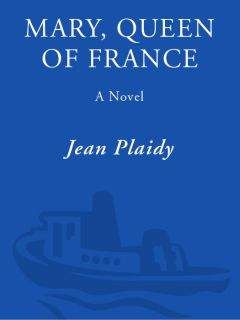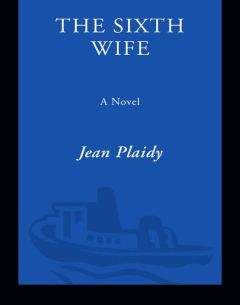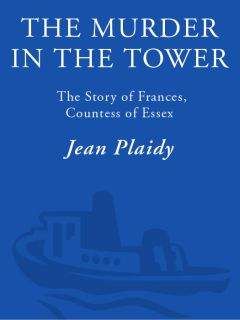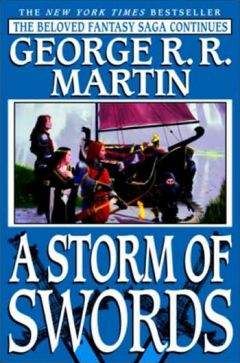Jean Plaidy - To Hold the Crown: The Story of King Henry VII and Elizabeth of York
На электронном книжном портале my-library.info можно читать бесплатно книги онлайн без регистрации, в том числе Jean Plaidy - To Hold the Crown: The Story of King Henry VII and Elizabeth of York. Жанр: Прочее издательство неизвестно, год 2004. В онлайн доступе вы получите полную версию книги с кратким содержанием для ознакомления, сможете читать аннотацию к книге (предисловие), увидеть рецензии тех, кто произведение уже прочитал и их экспертное мнение о прочитанном.
Кроме того, в библиотеке онлайн my-library.info вы найдете много новинок, которые заслуживают вашего внимания.

Jean Plaidy - To Hold the Crown: The Story of King Henry VII and Elizabeth of York краткое содержание
To Hold the Crown: The Story of King Henry VII and Elizabeth of York читать онлайн бесплатно
But they were disappointed because she was veiled and they could not see her face clearly.
“Is there something wrong that we are not allowed to see her?” Her hair was beautiful—long and luxuriant, hanging down her back, and there was a glint of red in it.
At Exeter Lord Willoughby de Broke was waiting to greet her.
He was charming. The King would soon be on his way, he told her. In the meantime he had the King’s express command to make sure that everything which could be done to make her comfortable was done.
She thanked him and said she had been made very welcome.
“You will discover how delighted we are to have you with us,” he told her. “I am the High Steward of the King’s Household and he has sent me from Westminster to make sure that nothing is left undone. The Spanish ambassadors are here in Exeter and they will be calling upon you soon, I doubt not. They will want to make sure that you are well cared for and if there is anything that does not please you, you must tell me and I promise you it shall be rectified.”
Katharine assured Lord Willoughby de Broke that she was well cared for. He was able to speak a little of her language and she was grateful for that. She realized that she would have been wiser to have spent the time when she was waiting to come to England in learning the English language. It was going to be very difficult for her to understand and make herself understood. She wondered why her parents had not insisted that she learn English and could only assume that her father might have been unsure that the match would take place and she be whisked off to some other country for the interest of Spain.
Almost immediately she was told that Don Pedro de Ayala had called to see her.
She was delighted to meet one of her own countrymen and asked that he be sent to her immediately.
Don Ayala was elegant and gallant and he reminded her so much of home when he spoke to her in Castilian. She felt comforted to have him at her side.
“The King is eager for you to arrive in the capital as soon as possible,” he said. “There the marriage will take place without delay. The King will meet you near London that you may be escorted there with all the deference due to an Infanta of Spain.”
“I had thought the King might have come to Plymouth,” she said.
“It is three weeks’ journey from London, Infanta.”
“It does not seem that he is eager to meet me.”
“He is eager, I promise you. This is a fortunate day for you, my lady, for England and for Spain. This marriage is one of the finest things that has happened since the expulsion of the Moors from our country.”
“Surely not as important as that. I should have thought my brother’s and sisters’ marriages were more important than mine.”
“Nay. We need the friendship of this island. Your father-in-law is a shrewd man. He is making England a country to be reckoned with. You may find it necessary to speak with me from time to time. You may think that there are certain matters which would interest your mother and your father.”
“Am I to be a spy in my new husband’s household?”
“Never that. Just a good friend to England and perhaps an even better one to Spain.”
“I cannot say,” she answered coolly. “There is so much I have to learn.”
Dr. de Puebla was announced while de Ayala was with her.
De Ayala’s face crinkled in distaste.
“Must you see this man, Highness?” he asked.
“He is my father’s ambassador,” she answered.
“I must warn you of him. He is a man of the people, lacking in education and manners. He is a Jew. He seems to forget his Spanish upbringing and lives like an Englishman.”
“I have been told that I must become an Englishwoman,” she replied. “Perhaps Dr. de Puebla is wise in his habits. My parents think highly of him.”
“He is on good terms with King Henry. Such good terms that he has been offered a bishopric.”
“Which he refused? Would that not have brought him in a good income?”
“It would indeed and his fingers itched to grasp it. But your father forbade it. He did not want him working entirely for the King of England.”
“Which makes me believe he is a man of sound sense. I shall receive him, Don Pedro. It would be churlish not to.”
“Then it must be, but I warn you, be careful of the man. He is of low origins and this comes out.”
De Puebla was brought in. He bowed obsequiously to Katharine and she noticed the looks he cast on de Ayala. The antagonism between these two was apparent. She would have to steer a path between them because they would be her chief advisers at the Court of England—de Puebla no less than de Ayala.
De Puebla assured her of his delight at seeing her, of the King’s pleasure at the marriage and of the joy this brought all lovers of Spain.
“And of England,” said de Ayala pointedly.
“My lady Princess,” said de Puebla, “the friendship between the two countries is the ardent wish of the Sovereigns . . . and of the King of England . . . no less. I’ll swear that the joy of the bride’s family equals that of the bridegroom.”
“I am very pleased that you are both here to be of service to me. I know I shall need your help.”
“It shall be my greatest desire to give it,” said de Ayala.
“And do not forget good Dr. de Puebla is standing by awaiting your command.”
When they left Exeter she rode between Lord Willoughby de Broke and de Ayala; and de Puebla was furious because he had to fall in behind.
She knew that she was going to have to endure their enmity when de Ayala continued to complain about the low-born Jewish lackey and de Puebla whispered to her to have a care of de Ayala . . . a self-seeker, a man bound by manners and customs rather than good sense, a coxcomb more interested in the cut of a jacket than matters of state.
“I will take care,” she promised both of them.
It was de Puebla who touched on those matters which de Ayala would have thought not for her ears.
De Puebla dispensed with Spanish innuendos. An inexperienced girl of sixteen who was going to be thrust into the heart of politics needed plain speaking. She must, thought de Puebla, have some inkling of what it was all about. De Ayala thought that she was just a symbol. All she had to do in his opinion was look beautiful, charm the King and the Prince, let the former see that she had no intention of meddling and to be fruitful and within a few years have half a dozen lusty boys playing in the royal nurseries.
He said: “Arthur will be manageable.”
“Manageable?” she asked.
De Puebla nodded. “He will love you, I am sure. He has been told that he must, and Arthur always does as he is told. He is delicate. Pray God he lives. But he is gentle and you will have no trouble from him. The Queen is mild and does not interfere so the King is very fond of her. Arthur has two sisters and a brother but they need not concern you very much. The older sister Margaret has to go to Scotland to marry the King there. Mary the other is very young yet. Henry the brother is ten years old—rather a lusty young fellow. You can be thankful that he is not the elder. Arthur—if he were a little stronger—would be the ideal match. You’ll have to watch his health a little. He’s delicate and if he died it would not be so good for Spain. But your main concern is to please the King.”
“How shall I do this?”
“Oh, be docile, bear children. Take a pattern from the Queen. The King trusts nobody. He is suspicious of all. This is due to the fact that there are other claimants to the throne. Recently two impostors arose on the scene. Their claims were clearly false and he overcame them. But there was one other . . . fortunately he is no longer in a position to menace the King. But the fact that they could appear and there be people to follow them has frightened the King. He is continually on the alert and would be very resentful if he thought anyone was trying to work against him.”
“Spain would never do that.”
De Puebla smiled. “Our two countries are friends,” he said. He moved closer to her and whispered: “But sometimes it is necessary to be watchful of friends.”
She could see what de Ayala meant. There was something offensive about de Puebla. But he was clever—she sensed that, and her father had told her that she must listen to him and do what he asked just as she must with the ambassador de Ayala.
It was a slow journey; she was very glad sometimes to ride in the horse litter which Lord Willoughby de Broke had provided. When she was tired of the litter there was her palfrey ready for her. She certainly could not have complained of a lack of attention.
She was learning something about the people of England. They were independent and did not stand on the same ceremony that she was accustomed to. The people came out to see her as she passed and they were clearly surprised that she should be veiled. They were frankly curious about her. Why, they asked, if she has nothing to hide in her face does she hide it?
They had no natural dignity, she decided; but she rather liked that. They shouted to each other, jostled each other and called to her in a manner she believed was not as respectful as it should have been.
The amounts of food that were consumed seemed enormous; it was interesting to be housed in the mansions of the squires and knights of the places they passed through. Here there would be fires in great fireplaces and minstrels to sing for her delight.
So she learned about her new country and her conversations with both de Ayala and de Puebla gave her some indication of what she must expect.
She was most interested to hear of Arthur.
“A gentle boy,” was de Ayala’s comment.
“Like a piece of clay he’ll be in your hands,” said de Puebla. “Mild as milk and sweet as honey. He’s a good boy. He’s caused no trouble to his father and he’ll cause none to his wife.”
“Is he not very strong?” she asked.
“He is not as robust as his younger brother,” said de Ayala.
“He’ll grow out of it,” said de Puebla. “Give him a wife. That’s what he needs.”
“Perhaps he seems more delicate than he is because he is constantly compared with young Henry,” commented de Ayala.
“There you speak truth,” said de Puebla in such a voice that meant “For once.” “I reckon they would have been happier if their roles had been reversed. Henry for King, Arthur for Church.”
“I beg you to refrain from such observations before the Infanta,” said de Ayala.
“The Infanta will forgive me,” said de Puebla . . . “particularly when she sees the truth of my remarks. My dear lady, your father has instructed me to give you an account of the English Court and that is what I must do.”
“Thank you,” said Katharine, “you are helping me a great deal.”
De Ayala lapsed into silence. He was always annoyed when she talked with de Puebla.
When they were within fifteen leagues of London messengers came to say that the King was on his way and was to meet the bride as soon as he arrived.
Doña Elvira said grimly: “The King may come but he shall not meet the Infanta until after the wedding. You know it is not the custom for the bridegroom and his family to see the bride before the ceremony of marriage has taken place.”
De Ayala said: “This is the King of England. It is not the same.”
“It is the same,” said Doña Elvira. “I should consider myself unworthy of my task if I allowed it.”
Prince Arthur was riding south from Wales. His father had commanded him to come with all possible speed for he wished them to be together to greet the Infanta.
Arthur was very uneasy. He was to be married. What would that mean? What was his bride like? He was terrified of marriage. There were obligations which he might not be able to fulfil. He was tired—he had always been tired for as long as he remembered. Too much was expected of him; and when he could escape the eyes of his father and his father’s ministers he was always relieved.
But all the time he had been in Wales this fate had been hanging over him. Marriage . . . It was hard enough being the Prince of Wales but to be expected to be a husband as well seemed almost too much for him to endure. He was spitting a little blood now. He did not want his father or mother to know; it drove his mother to despair and his father to look so anxious that he felt he was being reproached for his weakness.
I should never have been Prince of Wales, he often thought. How much better it would have been if Henry had been born before me. Henry could do everything that was expected of a Prince of Wales and what was so important liked doing it. Nothing pleased Henry more than to be at the center of affairs, to have everyone looking at him; he enjoyed answering their questions; he could dance, ride, hawk, hunt . . . do anything better than Arthur. Even at his books he excelled. There was only one thing he lacked. He was not the firstborn. And he resented that. Arthur had often seen the flashes of anger in his brother’s eyes, that sudden pout of the rather small mouth when Arthur was given precedence, as being Prince of Wales he always was; even at three years old he had been made a Knight of the Bath and two years later Knight of the Garter.
He was better at his studies than he was at outdoor sports. It was the one field in which he could beat Henry, in spite of the fact that Henry was no dullard and his tutors spoke highly of his ability to learn. But Henry of course had interests which Arthur could never have; Arthur loved his studies, he liked nothing better than to be allowed to sit with his tutor and read and discuss what he read and studied. His father had put the blind Poet Laureate Bernard André to teach him and they had become great friends. Another tutor and friend was Dr. Linacre who was a doctor besides being a classical scholar. Arthur wondered whether his father had appointed Dr. Linacre to keep a watch on his health as well as his studies. If this was so the doctor performed this duty very discreetly. He was some forty years old at this time and he seemed to Arthur full of widsom, having traveled widely in Italy and he had even attained a degree in Padua. He was considered to be one of the most learned men in the realm.
He had dedicated a translation from the Greek into Latin of Proclus on the Sphere to Arthur who felt very privileged to claim such a man as his friend. Oddly enough although he felt inadequate in the company of Court gallants he was quite at home with men like Dr. Linacre and Bernard André. He wished he could go on sharing his life with such people, but he had his duties—as his father was fond of reminding him—and now those duties entailed marriage with the Spanish Princess. She had arrived in England and his sojourn in Wales had come to an end.
“I am riding from Shene to meet her,” was the command his father had sent. “It would be well if you were to join me just before that meeting takes place.”
So he had begun the journey to London without delay, and at East Hampstead he joined his father’s cavalcade.
The King was delighted with the way everything had happened. At last the Infanta was in England and there could be no turning back now. Friendship with Spain was assured; and the dowry would be useful. Henry’s eyes glistened as he thought of that. His great anxiety was Arthur’s health. He had been disturbed to hear that the Infanta’s brother had died shortly after his marriage. Had he overexerted himself? It was a way with these young people and if they were not very strong it could be disastrous. It was difficult to imagine Arthur’s taking violent action in such a sphere but one could never be sure. This bride and bridegroom could be delayed for a little while . . . a few months . . . a year perhaps. His son the young Prince Edmund had died recently; that meant he had only two boys. True Henry was virile enough, but one could never be sure when people would sicken so he and the Queen must get more children. More boys.
Похожие книги на "To Hold the Crown: The Story of King Henry VII and Elizabeth of York", Jean Plaidy
Jean Plaidy читать все книги автора по порядку
Jean Plaidy - все книги автора в одном месте читать по порядку полные версии на сайте онлайн библиотеки My-Library.Info.




